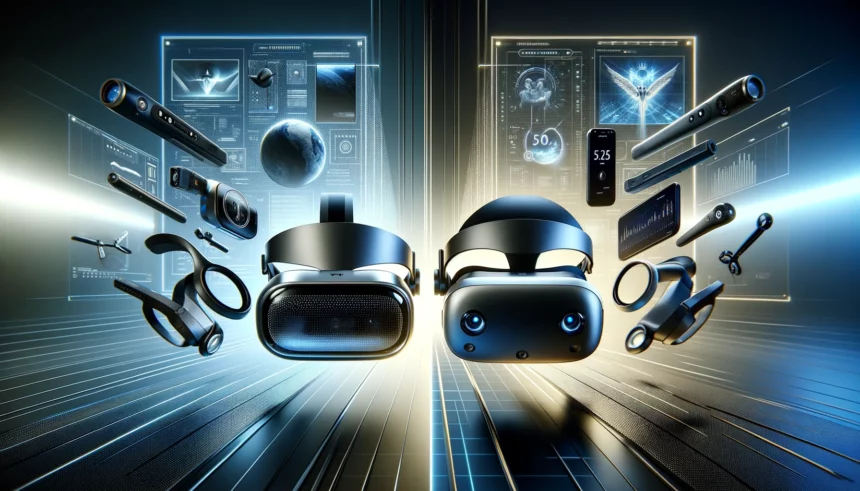In an unexpected turn of events, Mark Zuckerberg has openly declared the Meta Quest 3 as superior to Apple’s Vision Pro. The Meta CEO shared his thoughts through a video on Instagram, captured using the Quest 3’s passthrough feature, sparking surprise among tech enthusiasts.
Zuckerberg, before even testing the Vision Pro, believed that the Quest 3 would offer better value, given its price point is significantly lower—seven times less expensive than Apple’s offering priced at $3,500. His experience with Vision Pro only solidified his belief, positioning Quest 3 not just as the more economical choice but as the superior product overall.
Zuckerberg highlighted the differences in design philosophy between the two tech giants, noting that each headset has its strengths. However, he emphasized that for many mixed reality applications, Quest 3 outperforms its competition. He pointed out that whether it’s for gaming or exercise, the Quest 3’s lighter design—120 grams less than the Vision Pro—offers greater comfort and ergonomics without sacrificing screen quality or resolution.
Furthermore, Zuckerberg praised the Quest 3’s passthrough capabilities, its wider field of view, and brighter screens. He underscored the effectiveness of Quest’s hand tracking and physical controls, hinting at the possibility of reintroducing eye tracking from the Quest Pro to more affordable models in the future.
On the content front, Zuckerberg boasted about the exclusive ability to play Xbox games and watch YouTube on a large screen via Quest, despite the absence of an official YouTube app for the Vision Pro. However, it’s worth noting that there is a workaround with the Juno app, developed by Christian Selig, allowing YouTube content viewing on Apple’s headset.
While Apple is just entering the mixed reality and virtual reality scene with the Vision Pro, Meta has already established a robust library of content and partnerships, including with platforms like Roblox. Meta’s strategy of producing multiple headsets and reducing prices on older models demonstrates its determination not to give up market dominance to newcomers.
This declaration from Zuckerberg not only stirs the pot in the ongoing competition between Meta and Apple but also sets the stage for further developments in the mixed reality landscape.
The rivalry between Meta and Apple in the mixed reality space underscores a broader battle for dominance in a market that’s still finding its footing. As Apple steps into the arena with the Vision Pro, its late entry presents both challenges and opportunities. Apple’s reputation for high-quality, user-friendly products sets high expectations for the Vision Pro, yet Meta’s established presence and deep experience in VR give it a distinct advantage. Zuckerberg’s confident comparison of the Quest 3 and Vision Pro is more than just competitive posturing; it’s a statement of Meta’s intent to lead and innovate in mixed reality for the long haul.
Moreover, the feedback from Zuckerberg hints at an evolving landscape where mixed reality devices are becoming more integrated into everyday activities, from entertainment to fitness. The emphasis on comfort, usability, and the blend of hand tracking with traditional controls in the Quest 3 points to Meta’s focus on creating a versatile platform that appeals to a wide audience. As technology matures, the competition between Meta and Apple is likely to spur further innovation, driving improvements in device ergonomics, content availability, and the overall user experience. This rivalry, while highlighting the current capabilities and future potential of mixed reality technology, ultimately benefits consumers by pushing the boundaries of what’s possible in this immersive digital frontier.
















